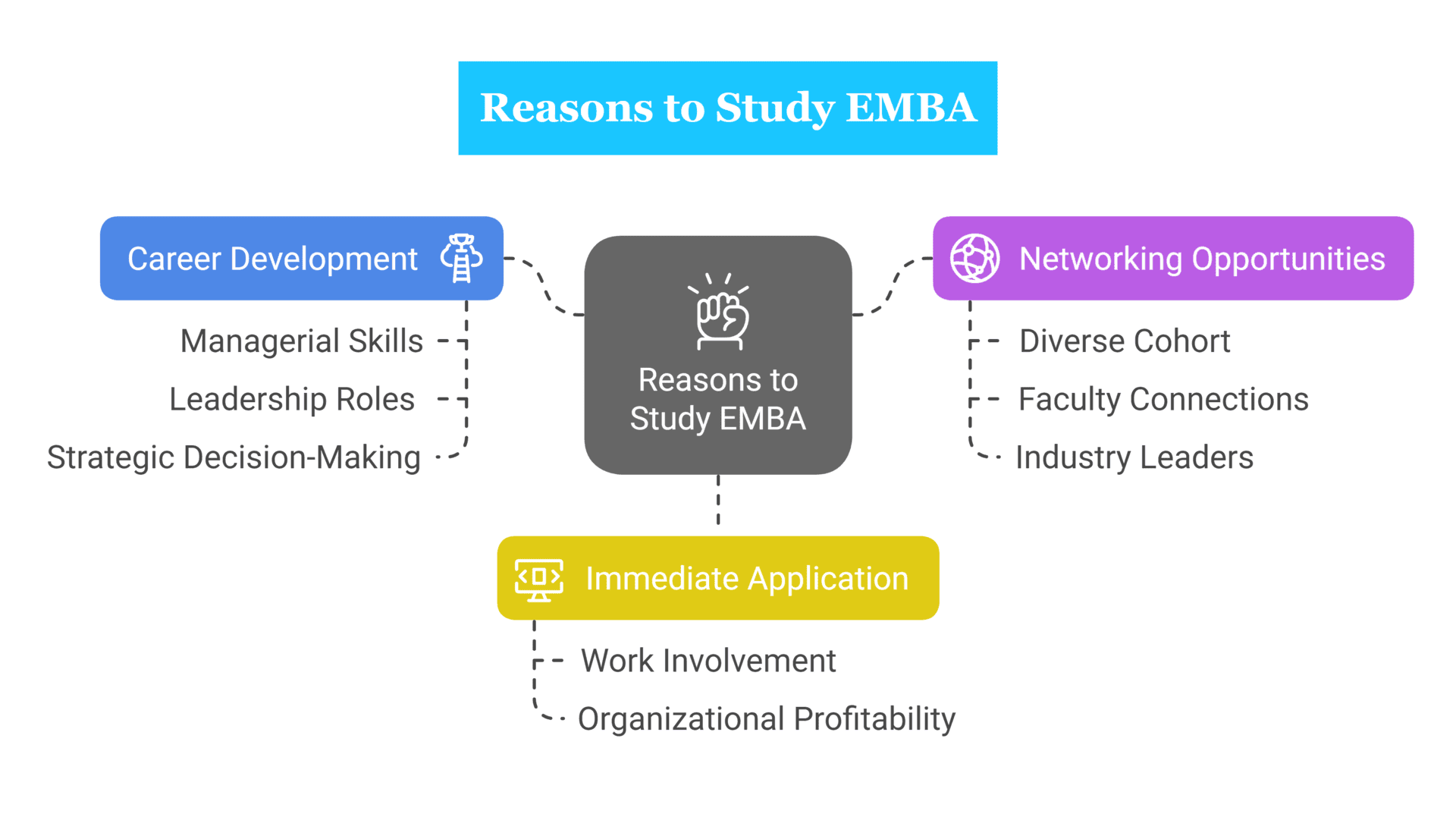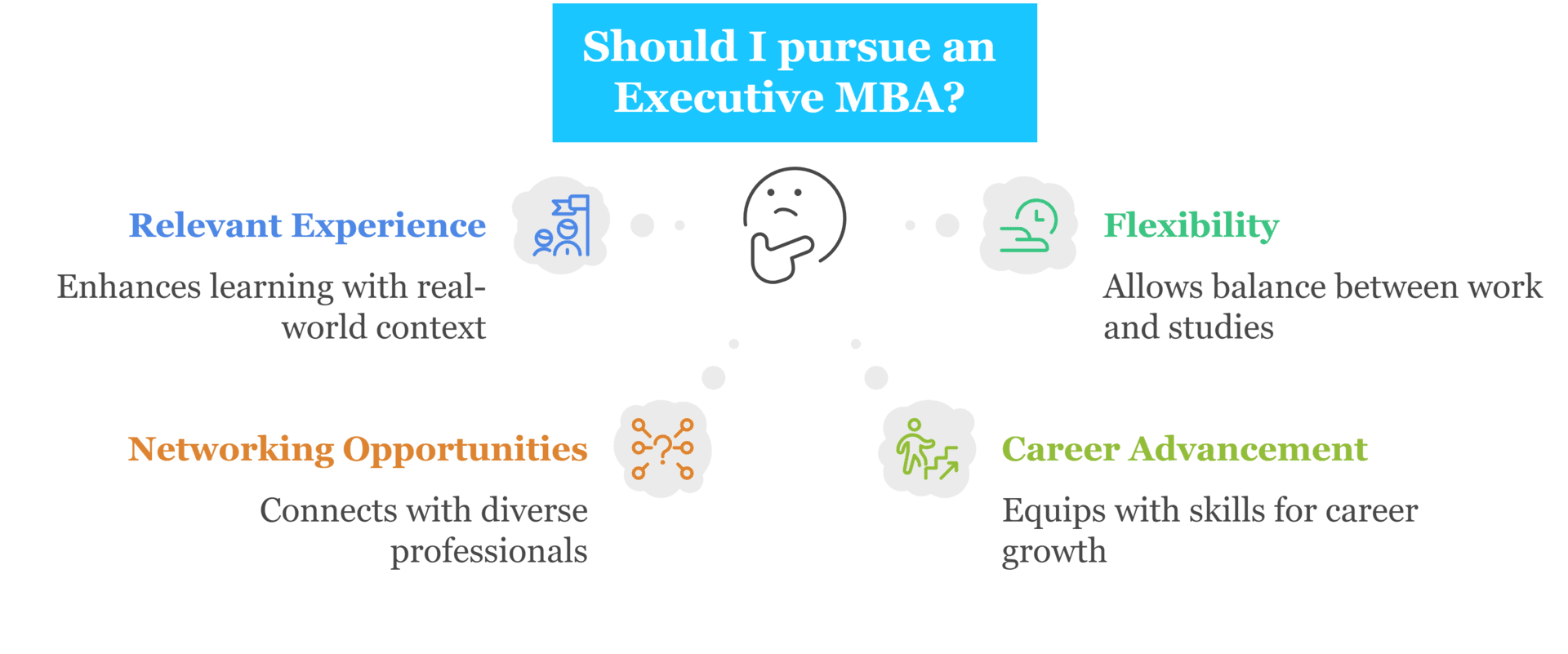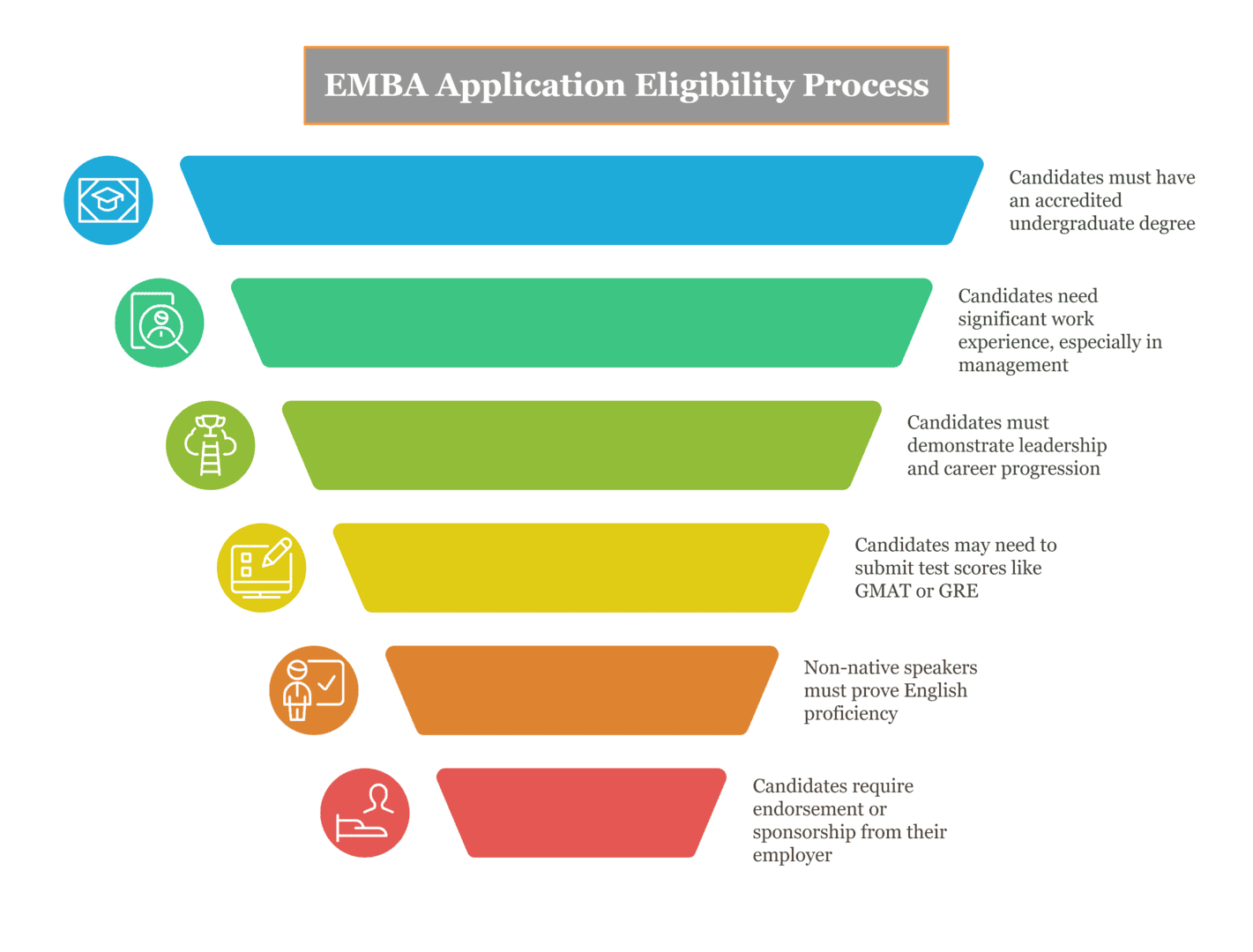
Executive MBA Eligibility Explained: What You Need to Know Before Applying
Embarking on an Executive MBA (EMBA): Enrich Your Career at Pinnacle Heights
With this ever-lending world of business, at some point, it may require not just lifelong learning but also strengthening the skills strategically. An Executive Master of Business Administration (EMBA) provides capable opportunities for professionally experienced individuals to hone their leadership capacity even more, network effectively, and then make possible the success of the organizations.
Table Of Content
What Is This Executive MBA?
Reason To Study EMBA?
Know About Executive MBA In India
Executive MBA For Working Professionals
India MBA Education Market: Size, Share, Competitive Landscape, and Trend Analysis Report
What Are the Eligibility Criteria Needed to Apply for an EMBA?
Which Is The Best Suitable University?
How Is Jaro Education Revolutionizing Online Higher Learning in India?
Still Doubting Executive MBA Eligibility?
Frequently Asked Questions
What Is This Executive MBA?
Executive MBA is an EMBA-specialized MBA designed for existing professionals with substantial years of work experience, like 5 to 15 years. On the other side, an MBA dedicates time to the majority of full-time students. EMBAs, though, are offered in flexible formats with weekend classes, online executive MBA modules, or intensive residential sessions to suit working individuals.
Reason To Study EMBA?

- Career Development: Acquire managerial skills of higher intermediacy in preparation for senior leadership roles and strategic decision-making ability.
- Networking Opportunities: Expand your professional network and create new opportunities for yourself by meeting and connecting with a diverse cohort of fellow professionals, faculty, and industry leaders.
- Apply Readily: You will be able to get everything learned in class as soon as you can apply it to your involvement with current work and organizational profitability.
Know About Executive MBA In India
Executive MBA For Working Professionals
The Executive MBA (EMBA) programs serve those already on a professional track, in other words, individuals with several years of work experience. The traditional MBA, on the other hand, pertains to young graduates or those with limited work experience. Here are some advantages offered by the Executive MBA program compared to a regular MBA:

- Relevant experience: EMBA students have often spent several years on the job. Their work provides important context to the learning experience and helps them understand better how the course material applies in real-world situations.
- Flexibility: EMBA programs are designed for working professionals and have flexible schedules, allowing students to balance work and studies.
- Networking opportunities: EMBA programs attract students from diverse industries and backgrounds, providing enough opportunity for all students to network and connect with like-minded professionals.
- Career advancement: An EMBA equips candidates with the skill sets and knowledge to climb an organization’s ranks or change careers altogether.
- Global exposure: Many EMBA programs include international study options, providing exposure to different cultures, business customs, and modes of reasoning.
- Immediate application: Students pursuing EMBA programs would often be in a position to apply classroom discussions immediately at work; this would yield quicker results and impact.
What Are the Eligibility Criteria Needed to Apply for an EMBA?
Some may view it as a rather high initiation when the Executive Master of Business Administration (EMBA) is being pursued by some professionals who would like to polish their leadership skills and be team leaders in their careers. However, executive MBA eligibility differs from one place to another as per the institutes. Before these two conditions, there are some commonplaces:

- Educational Qualifications
Most programs call for an applicant to have an undergraduate degree from accredited surroundings; others might just name various percentages or GPAs as minimum requirements. Because of this, some colleges may ask for people with a bachelor’s degree that had not less than 50% marks.
- Professional Experience
EMBA programs are structured specifically to suit viable candidates. Usually, schools say the candidate must already have significant work experience, most likely working for a certain proportion of their careers in a managerial capacity. For the most part, for example, for the Wharton EMBA, a candidate must have accumulated eight years of work experience, at least five of which must qualify at the managerial level.
- Leadership and Career Progression
Evidence of effective leadership and an upward career trajectory are vital features to prove. Hence, admissions committee members are looking out for candidates who have tangibly accomplished in their professional activities. This requires a comprehensive resume highlighting these areas.
- Standardized Test Scores
It sometimes requires a standardized test score, such as GMAT, GRE, or even Executive Assessment, to admit the student in his quantitative and analytical readiness. For instance, applicants to Columbia Business School have to add valid self-reported GMAT, Executive Assessment, or GRE scores.
- English Language Proficiency
A requirement for most non-native speakers of English is proficiency in English through testing such as the TOEFL or—less frequently— IELTS, or proof of previous employment or study in an English-speaking environment.
- Employer Support:
Because of the intensive nature of EMBA programs, some institutions will ask for an employer endorsement/sponsorship form stating that the organization is backing one’s application and acknowledging the time commitments for the program.
- Application Materials:
Typical application materials may include:
- Resume/Curriculum Vitae: Detailing professional experience and accomplishments.
- Essays or Statement of Purpose: Articulating goals, motivations, and reasons for pursuing EMBA.
- Letters of Recommendation: Providing insights into professional relationships and leadership qualities.
- Interview: Many programs conduct interviews to ascertain fit and readiness for the program.
- Age and Work Experience:
Some programs set up age ceilings and other distinctions for the amount and type of work experience. For example, the MIT Executive MBA has a minimum requirement of 10 works per candidate.
It’s extremely noteworthy that executive MBA eligibility criteria vary with a diverse array for various institutions. Hence, take time to carefully review the specific requirements for each of the EMBA programs you look into and clarify any doubts with their admissions office.
Which Is The Best Suitable University?
Dayananda Sagar University (DSU) in Bengaluru, Karnataka, was established in 2014. It has deep roots, is influenced by a legacy of seven decades under Dayananda Sagar Institutions, and primarily depends on imparting superior-quality higher education. DSU is officially accredited and recognized by the University Grants Commission-India and is thus a full-fledged co-educational higher educational institution. The institute has an ethos of providing all Indians aspiring to pursue higher education with nothing but quality education. Dayananda Sagar University is well on its way to creating an innovative environment. The environment is characterized by its modern and state-of-the-art infrastructure, spanning 25,000 sq. ft. Its commitment is to be the innovation hub with an unmatched learning ecosystem for its students. DSU has topped academic charts in all fields of knowledge and gained unprecedented achievements.

Executive MBA Certification Program:
Today, an ever-changing world presents more challenges than ever for the worker to upskill and to be relevant at various stages of one’s career. A good postsecondary education is necessary to ascertain that the workforce is of very high quality. Dayananda Sagar University’s 17-month E-MBA program will provide valuable insights into sustainable career advancement in the management sector. The program is designed keeping working professionals in mind, offering the flexibility of online executive MBA classes and weekend on-campus sessions that may also be done remotely, helping the individual scale up at a pace he finds convenient and add value to his corporate roles.
Duration: 17 months
Executive MBA Eligibility Criteria:
- 3/4-year graduation degree holders from recognized universities.
- Minimum: 1 year of full-time work experience.
Program Fee Structure:
Application Fee INR 1,000
Total Programme Fee INR 2,25,000
How Is Jaro Education Revolutionizing Online Higher Learning in India?
Over 350,000 careers have been changed by the organization in the past 15 years, plus through more than 23 learning centers all over India, Singapore, and the USA.
Jaro Education offers various programs from executive education to certification, degree, and doctoral programs in disciplines including management, technology, analytics, design thinking, project management, leadership, and finance, matching the demands of early to C-suite executives.
The company has been awarded many awards, such as the Edtech Leadership Award and the National Best Employer accolades by the World HRD Congress in March 2022. Besides, the Outlook Business Icon also awarded Jaro Education as India’s Most Trusted Online Executive MBA Higher Education Company in 2023.
The very purpose of Jaro Education is to spread affordable yet quality education so that professionals imbibe the potential to rise in their careers and be well-placed regarding the changing demands in the future job market worldwide.
Still Doubting Executive MBA Eligibility?
An Executive MBA program could significantly impact decade-long working professionals in continuing their careers. By opening up the criteria for being eligible for the researched reputable colleges, there can well be a thorough analysis of the personal career objectives. Buy effectiveness analysis for proper comparison.
Do contact us for the best and top-notch guidance at Jaro’s education for further doubts and counseling.


